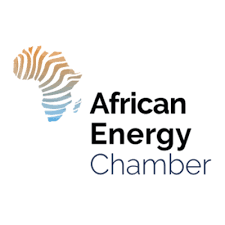 24 April 2013, Abuja – The Northern States Governors Forum, NSGF, has voiced opposition to the allocation of 10 per cent of the nation’s petroleum income to host communities as enshrined in the proposed Petroleum Industry, PIB.
24 April 2013, Abuja – The Northern States Governors Forum, NSGF, has voiced opposition to the allocation of 10 per cent of the nation’s petroleum income to host communities as enshrined in the proposed Petroleum Industry, PIB.
According to the group, which made its position known in a memorandum to the House of Representatives Ad-hoc Committee on the PIB, the creation of Host Communities Fund was a ploy to make more funds available to oil producing states.
It rejected the proposed split of the Nigerian National Petroleum Corporation, NNPC, as it also opposed the discretionary powers given to the Minister of Petroleum Resources to determine royalties paid by oil firms.
The memorandum was signed by the Chairman of the NSGF, Governor Babangida Aliyu.
It read in part: “The most controversial provision of PIB 2012 is the introduction of the Host Communities Fund, which is creating a fourth tier of government in the sharing of the revenue of the Federation.
“Whereas the constitution of Nigeria recognises only three tiers of government in directly accessing the Federal Reserve and the Niger Delta Development Commission, NDDC, is meant to take care of the special needs of the host oil-producing communities.
“The PIB does not state exactly what constitutes a host community or how funds will be conveyed to the community. The provisions of the PIB 2012 relating to the Host Community Fund touches on the question of the revenue allocation and utilisation in a Federation such as Nigeria.
“The Constitution of the Federal Republic of Nigeria already allocated 13 per cent of the Petroleum income as derivation precisely to cater for the special needs of petroleum producing communities; the 10 per cent Host Community funds in PIB 2012 is merely an attempt to extend this through an act of the National Assembly without the required constitutional amendment.
“In other words, the issue of derivation has already been exhausted in the Constitution. What is rather needed to be done is improvement on the present derivation factors and formulas to correct disparity and open other opportunities for other part of the country.
“President Goodluck Jonathan presented a draft Executive Bill (The Petroleum Industry Bill 2012), aimed at a comprehensive reform of the Petroleum Industry to the National Assembly.
“Recognising the monumental impact that a new legislation will have on various aspects of the economy and of course, various regions of the Federation, the draft Bill has generated series of discourses and counter-discourses from virtually all parts and sectors of the country.
“It is, therefore, on this premise that the submissions below are made to promote the best interest of the critical views involved within the context of the overall national interest and propose ways of engaging all relevant parties to address the issues and concerns, including the National Assembly.”
It added: “PIB 2012 grants disproportionate powers and authority to the Minister of Petroleum Resources over policy, regulatory and operational issues.
“Thus, it is not justifiable to grant such vast enormous power to a single function of one tier of government given that the PIB deals with the Federation as a whole. It is noteworthy to establish that such laws should not be enacted because of the present occupant; it should rather embrace generality and universality.
“We should understand the fact that the Ministry of Petroleum Resources remains essentially a civil service outfit that is ill-equipped to conceive and formulate the required policies for such a complex and sophisticated industry.
“In addition, the Nigerian National Petroleum Corporation, NNPC, has remained a typical public bureaucracy that operates as a huge unstructured cost centre with no sensitivity to the bottom-line”.



